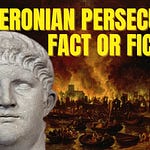I was very happy to endorse Gavin Ortlund’s book What It Means To Be Protestant: The Case for an Always-Reformed Church. Here’s what I wrote:
Gavin Ortlund presents s compelling case for mere Protestantism by showing how a Protestant faith is a recovery of the apostolic gospel and answers the abiding questions of church, authority, and tradition. It is a robust program to be both evangelical and ecumenical. An authentic church, Ortlund teaches us, should be constantly conforming itself closer to the gospel. A great way for Protestants to kick-start conversations with other Christian traditions.
Ortlund gives a fair and nuanced case for scriptural authority and a biting critique of papal supremacy.
Ortlund points out too that Protestantism was about reasserting apostolicity, recovering the apostolic gospel, and making it central. It wasn’t a denunciation of the past, but the retrieval of it! He writes:
[T]hey [the Reformers] argued from history, casting the Protestant effort as a retrieval of patristic practice and thereby a return to catholicity - that is, the doctrine and practice that is more representative of the fullness of the church (p. 138).
Protestantism is not the creation of a new church, but simply the ancient faith in the posture of dynamic change and reform (p. 220).
I agree, the Protestant project was a retrieval and renewal of the apostolic gospel within the churches, not a radical novelty attempting to depart from it. The tragedy he also points out is how far many Protestant churches have drifted from Protestant ideas of worship, sacraments, preaching, church membership, civil engagement, and how faith and works go together. Calvin’s Geneva would seem utterly foreign to the Megachurches of America! Protestant churches are perhaps more consumerist than Protestant!
And yet, after re-reading the book, I feel like Ortlund hasn’t dealt with a few particular problems.
First, Protestant fragmentation.
Protestants have a tendency to put conscience over catholicity so that individual interpretation trumps the entire depth and breadth of the great tradition. Luther’s appeal to scripture and conscience over the magisterium was fine … if one was still operating within the aegis of scripture and tradition. But it yielded fragmentation and division within Protestantism. Every man and woman could follow their consciences to strange and weird places.
Remember, there are like 40, 000+ Protestant denominations, hundreds of different types of Baptists, Presbyterianism, Methodisms, and Pentecostalisms. There is certainly diversity in Catholicism, Greek Orthodoxy, and Oriental Orthodoxy, but they are able remain relatively stable, homogenous, and cohesive even with those diversities. Protestants create new churches based on the whims, rivalries, and personalities of various leaders. Protestantism often feels less like an archaeological dig for the apostolic message and more like a land mine that has exploded in a thousand different directions.
Here is the problem: Protestantism followed its conscience away from catholicity and unity. How do you fix that?
Second, Protestant scepticism towards authority.
You could argue that Protestant scepticism towards church authority was eventually applied to biblical authority. The suspicions about the guy in the pointy white hat were soon applied to suspicions about the white pages in Holy Scripture. Protestantism began with scepticism of the medieval religious tradition and soon that scepticism was applied to the entire notion of a religion based on divine revelation. In other words, deism, atheism, and pantheism are perhaps the endpoint of Protestant scepticism towards all religious authority. You could argue that the line from Martin Luther to Friedrich Schleiermacher to Richard Dawkins is natural and inevitable!
Is Protestantism destined towards unbelief because of its inherent hermeneutics of suspicion?
Third, the Protestant motto of semper reformanda (always reforming) is task and tragedy.
Sure, the reformation was about retrieval not reinvention, but the thing is that it soon became reinvention. There are Anglican, Presbyterian, Baptist, and Methodist churches that have more in common with paganism than with St. Paul and are rather proud of it. In many places, Reformation did become reinvention.
Now, I should add, that Vincent of Lerins referred to the “improvement of our religion” even in the context of affirming orthodoxy as what the church teaches, everywhere for all time. The doctrines of the Trinity and attitudes about the practice of slavery undoubtedly developed. So orthodoxy is not a carbonized curatorial Christianity, it can flex, it can organically grow. But there is a difference between organic growth and splicing in ideas completely foreign to the soil and roots of Christianity. That problem is not exclusive to Protestantism, it is felt too in Roman Catholicism, but in Protestantism the problem is particularly acute.
Fourth, who does catholicity better?
Does the average evangelical or non-denominational church have any sense of being part of one, holy, catholic, and apostolic church?
I’ve been in American churches where it is consumerist religion with a vague Jesus gloss, not a worship of the triune God, no confession of sin, no creeds, effectively a Coldplay concern with a Tedtalk.
I have to ask, who does “one, holy, catholic, and apostolic church” better, Baptists, Pentecostals, Methodists, or Anglicans?
I have argued that one of the benefits of Anglicanism is that it is Reformational Catholicism. At its best, Anglicanism is what the Catholic church would look like if it embraced the Reformation.
Maybe Gavin’s dad, Ray Ortlund, has noticed this in his turn to Anglicanism.
In order to be authentically Protestant, perhaps one needs to find and attend a church that aspires to be part of “one, holy, catholic, and apostolic church” as opposed to religo-tainment for middle-class America.













Share this post